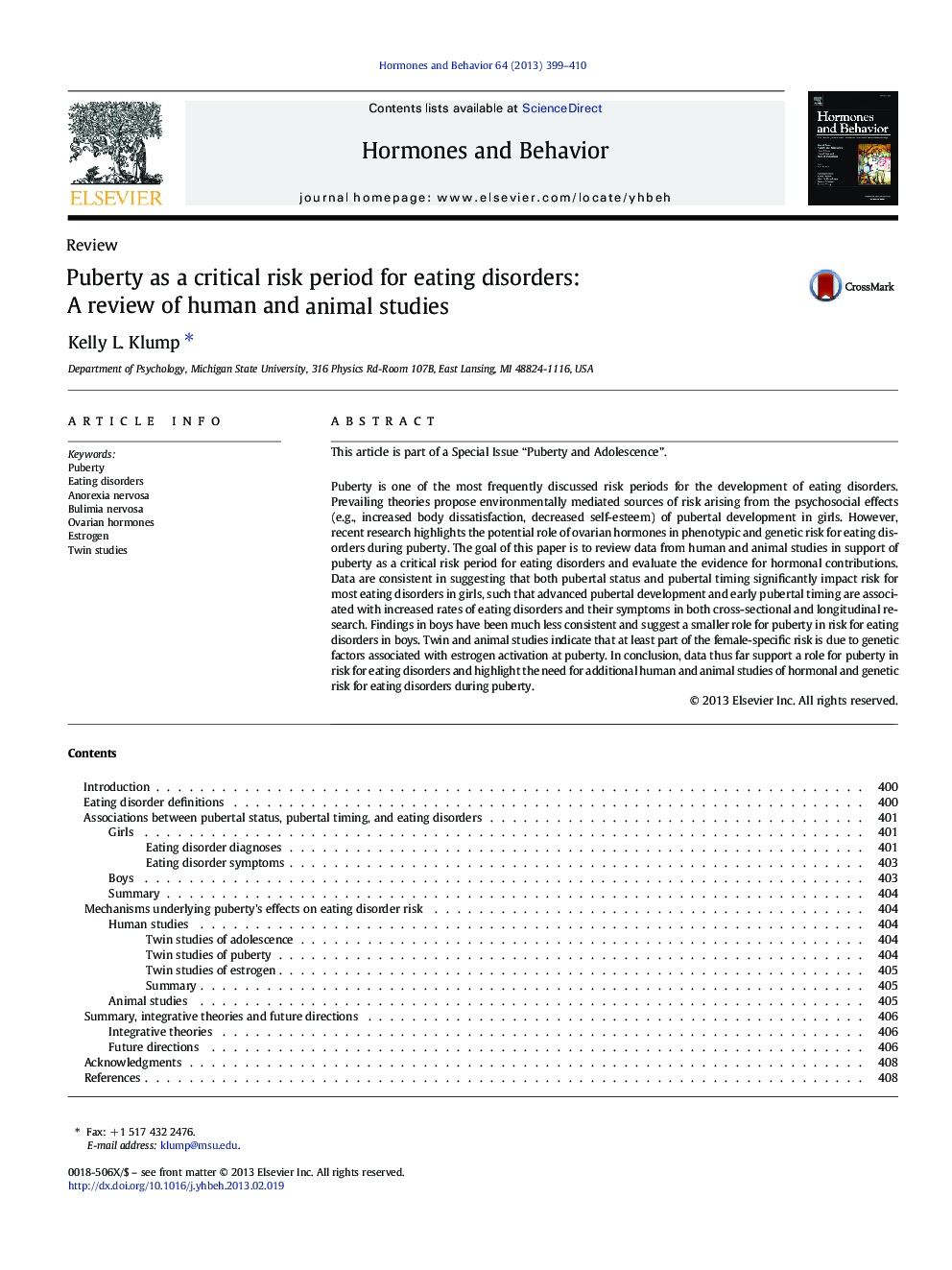| کد مقاله | کد نشریه | سال انتشار | مقاله انگلیسی | نسخه تمام متن |
|---|---|---|---|---|
| 322760 | 540231 | 2013 | 12 صفحه PDF | دانلود رایگان |

• Human and animal studies of pubertal risk for eating disorders are reviewed.
• Advanced pubertal status and early pubertal timing increase risk in girls.
• Puberty is less consistently linked to eating disorder risk in boys.
• Female-specific risk may be due to estrogen activation of genetic influences.
This article is part of a Special Issue “Puberty and Adolescence”.Puberty is one of the most frequently discussed risk periods for the development of eating disorders. Prevailing theories propose environmentally mediated sources of risk arising from the psychosocial effects (e.g., increased body dissatisfaction, decreased self-esteem) of pubertal development in girls. However, recent research highlights the potential role of ovarian hormones in phenotypic and genetic risk for eating disorders during puberty. The goal of this paper is to review data from human and animal studies in support of puberty as a critical risk period for eating disorders and evaluate the evidence for hormonal contributions. Data are consistent in suggesting that both pubertal status and pubertal timing significantly impact risk for most eating disorders in girls, such that advanced pubertal development and early pubertal timing are associated with increased rates of eating disorders and their symptoms in both cross-sectional and longitudinal research. Findings in boys have been much less consistent and suggest a smaller role for puberty in risk for eating disorders in boys. Twin and animal studies indicate that at least part of the female-specific risk is due to genetic factors associated with estrogen activation at puberty. In conclusion, data thus far support a role for puberty in risk for eating disorders and highlight the need for additional human and animal studies of hormonal and genetic risk for eating disorders during puberty.
Journal: Hormones and Behavior - Volume 64, Issue 2, July 2013, Pages 399–410